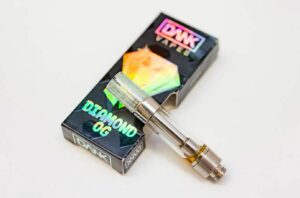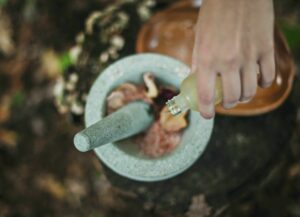THCA, or tetrahydrocannabinolic acid is the biosynthetic precursor of THC but has radically different properties – THCA won’t induce any psychoactive effects, in contrast to THC, but surprisingly plays a major role in the process of lab-testing cannabis strains for potency. So the cannabis plant in its natural state is THCA. The plant is first dried, cured, and then, combusted, resulting in it transforming into THC to cause a more psychoactive effect. THCA is THC in its acidic and non-psychoactive form. Many tinctures (oil/spray) do not decarboxylate the plant, so most tinctures contain high levels of THCA. Some people looking for the therapeutic effects of THCA without the psychoactivity of THC will juice the raw cannabis plant.
Research in the field of THCA is continuously progressing, but it is still too early to make definite statements about the therapeutic effects of this compound – which certainly does not mean there aren’t any. Preliminary studies point out potential medicinal benefits including:
• The reduction of nausea induced vomiting and appetite loss (anti-emetic)
• Protective capacities for treatment of neurodegenerative diseases (e.g. Parkinson)
• Anti-inflammatory effects beneficial for treating a wide range of diseases (e.g. Arthritis)
• Inhibition of prostate cancer growth (anti-proliferative)
nptherasse





